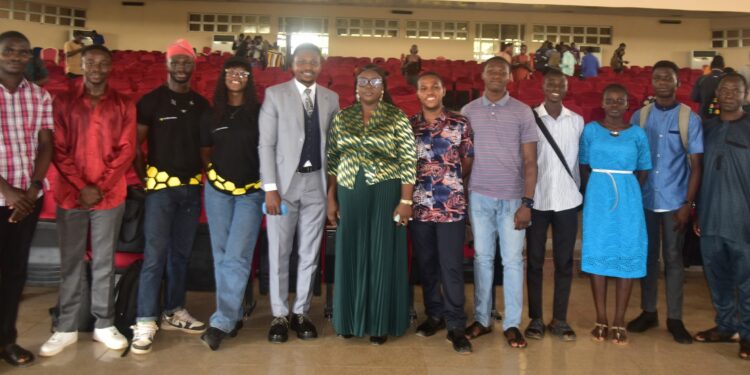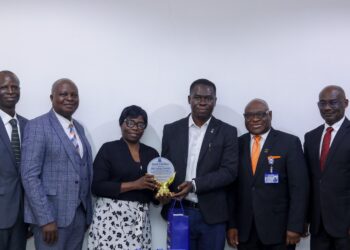In a bold step towards equipping its students with practical life skills and entrepreneurial mindset, the Federal University of Technology, Akure (FUTA) has formally commenced its mandatory 2024/2025 academic session entrepreneurship training for all 300-level students. The initiative, a flagship programme of the University’s Centre for Entrepreneurship (CENT), was flagged off on Wednesday, June 11, 2025, with an orientation programme held at the Obafemi Awolowo Auditorium.
Themed “Driving Economic Growth: The Role of Entrepreneurship and Innovation in Job Creation,” the event set the tone for what promises to be a transformational 10-week training aimed at bridging the gap between academic learning and real-world enterprise.
The 10-week training is expected to expose students to diverse practical skills across selected vocational and innovation-driven sectors. At the end of the programme, students are expected to present business plans or prototypes showcasing their entrepreneurial competencies.
Speaking on behalf of the Vice Chancellor, Professor Adenike Oladiji, the Deputy Vice Chancellor (Development), Professor Sunday Oluyamo, encouraged the students to see entrepreneurship not merely as a course requirement, but as a pathway to economic empowerment and self-reliance.
“Entrepreneurship is the key to ending poverty and sustaining viable businesses in any economy,” she said, urging the students to seize the opportunity to build lifelong skills.
The Vice Chancellor noted that this initiative underscores FUTA’s commitment to producing graduates who are not only academically sound but also enterprising and capable of creating employment rather than merely seeking it. As Nigeria grapples with rising youth unemployment and economic uncertainty, FUTA continues to drive solutions by embedding practical entrepreneurship into its academic structure.
In his keynote address, Mr. Solomon Samuel, a representative of The Hive Incubator, FUTA’s innovation and enterprise partner, challenged the students to think beyond the classroom and embrace creativity and boldness in solving local and global problems. “We are here to walk with you — not just to talk about business, but to help you design value and discover markets that need your solutions,” he said.
Earlier, the Associate Director of the Centre for Entrepreneurship, Dr. Olugbenga Emidun, described the training as a foundation for raising a new generation of innovative leaders and change agents. “Entrepreneurship is not just about ideas. It’s about execution, resilience, and relevance,” he noted. According to him, the training will help students understand how to manage resources, take initiative, and solve problems innovatively.
He also emphasized the importance of project-based learning, urging students to create practical solutions and business models that reflect what they have learned by the end of the programme.
The orientation programme also featured engaging interactive sessions, including business games and quizzes to stimulate critical thinking and creativity. One of the highlights was an entrepreneurship-based online game that saw one of the students, Kuye Sunday emerge winner, earning applause from peers and facilitators alike.



















































































 EduTimes Africa, a product of Education Times Africa, is a magazine publication that aims to lend its support to close the yawning gap in Africa's educational development.
EduTimes Africa, a product of Education Times Africa, is a magazine publication that aims to lend its support to close the yawning gap in Africa's educational development.